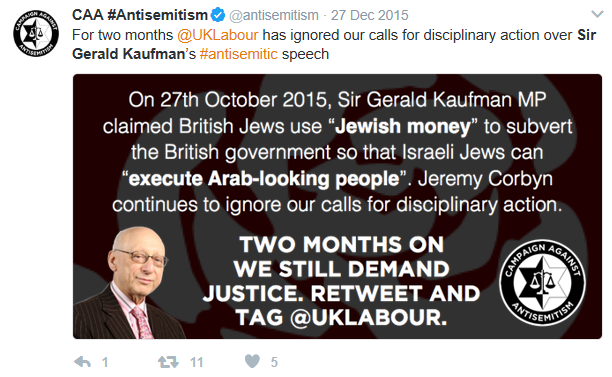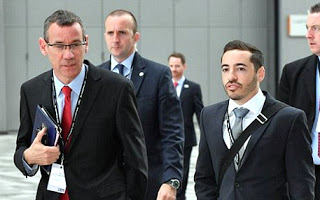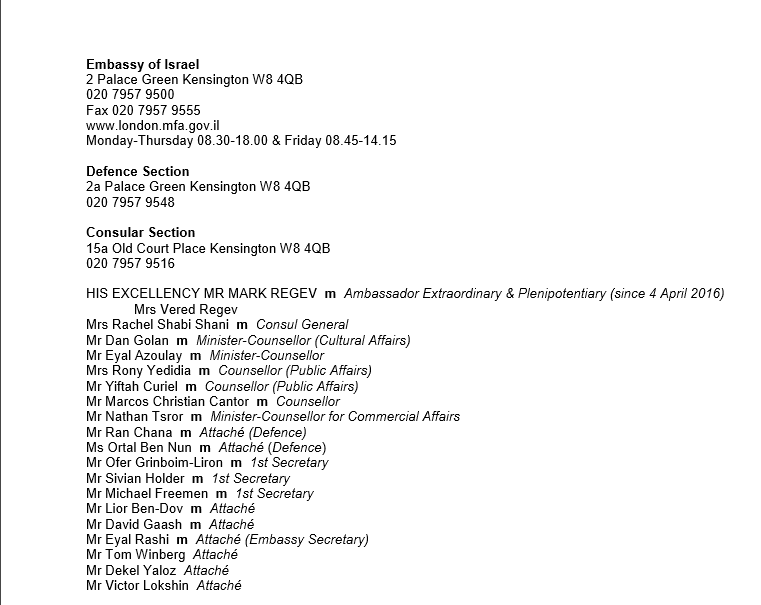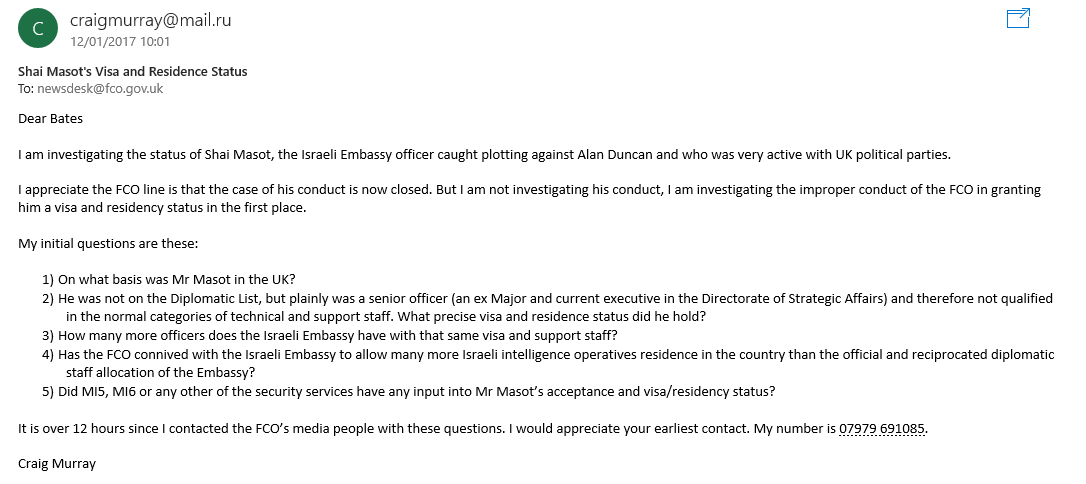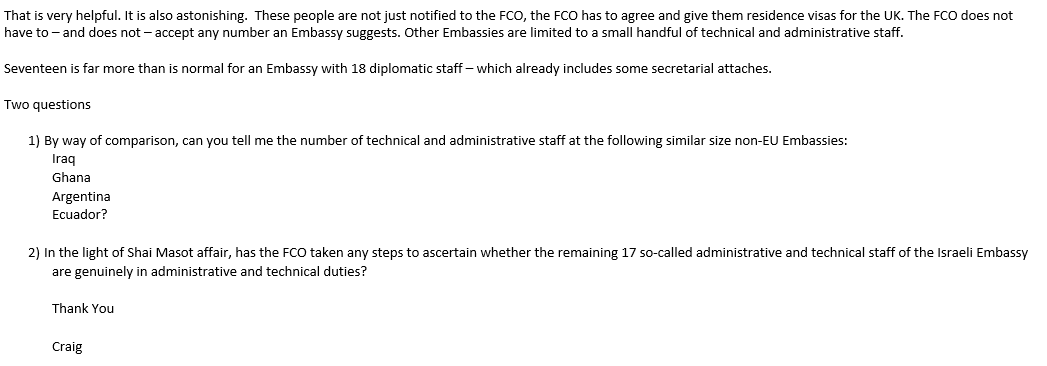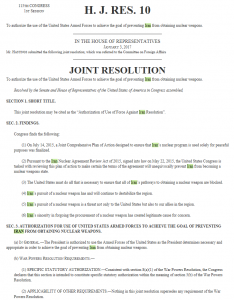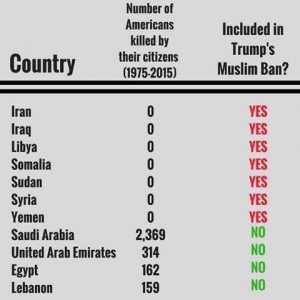I have always believed that Theresa May is likely to try to block a new Independence referendum – and it is extremely unlikely her defence secretary, the odious Michal Fallon, would have said this so categorically without prior agreement with May. Fallon, taking a break from supplying weapons to the Saudis for killing Yemeni children, displayed huge arrogance towards Scotland, which the Tories believe is firmly under the heel. They refuse to acknowledge that any difficulty arises from the contradictory referendum results in Scotland, where Scots voted both to remain part of the UK, and to remain part of the EU – the second more recently and by a much wider margin.
The Tory view is that Scotland is but a province of the UK. They are of course right – the UK Supreme Court decision makes quite plain that Scotland’s so-called “parliament” does not derive its power from the Scottish people, but only from what Westminster condescends to hand back. Indeed Westminster could abolish Scotland’s parliament tomorrow. For the Tories, a combination of that Supreme Court decision, their Brexit victory, and the elevation of the Tories to 21% in Scottish elections (Fallon quotes public support for Ruth Davison in his interview), mean that they don’t have to offer Scotland anything.
For God’s sake, let them not be proved right.
Do you remember the scene in Braveheart, where the nobles at Stirling Bridge are planning to negotiate and go home, and Wallace forces them into a fight? Well, I know which Sturgeon reminds me of more at the moment. If she is planning to fight eventually she is masking her intentions brilliantly. The problem that worries me is that the SNP is now the Scottish establishment, and as Scotland is still very much part of the UK, they are part of the British establishment too. A lot of our MPs seem to have their feet under the table very nicely at Westminster. The SNP as an institution has not just its Westminster MPs but their secretaries and research assistants and the group staff, and all the people paid with millions of Westminster “Short money”. That is a major group of party apparatchiks making a fat living out of the current system. Plus of course Holyrood and its power and jobs.
The SNP as an institution is doing very nicely out of the status quo, and that is why there are so many siren voices within the SNP arguing that it is too early for a referendum; “we might lose it”, “leaving the EU is not such a disaster”, “there are a lot of anti-EU Independence supporters anyway”.
There is a lot of self-fulfilling prophesy here. As there has been virtually no actual campaigning for Independence since 2014 and the media still spew anti-Independence propaganda daily, it is hardly surprising Independence support is not rising in the polls. It is a miracle it is holding steady.
The Tories are banking on leaving the EU being normalised. People are getting used to the idea, and the ill consequences of leaving the single market will not really bite until we do so. This is where Sturgeon’s Fabian tactics play in to the Tory agenda. Instead of a break with Westminster over EU membership, the Scottish government is allowing public interest to evaporate in a series of dull Joint Ministerial Committee meetings. There matters are kicked into long grass and mollifying but insincere words spoken about how seriously the devolved administrations are being taken. I can see no point in continuing with this charade unless the SNP itself intends to allow the issue to fizzle out in a drizzle of EFTA’s, EEA’s, CTA’s and other dull acronyms.
The racist majority in England and Wales are trying to force us out of the EU. The UK Supreme Court has ruled the Sewel Convention has no legal force. Now the Tories are arrogantly refusing the right of the Scottish people even to hold a referendum. I cannot imagine the degree of humiliation the SNP feels is necessary to pull the trigger on another Independence attempt. The time is now.
If the Tories do succeed in preventing another referendum from taking place, they are playing with fire. It is worth noting that there is no requirement for Scotland to hold a referendum to become Independent.
Independence is not an internal question. It is the existence of a state recognised by its fellow states, and that recognition is expressed by the General Assembly of the United Nations. A referendum is not a requirement for that UN recognition. Please note the rest of this paragraph very, very carefully. The majority of States in the world have achieved independence during my own lifetime. The vast majority of those did so without a referendum. Not only is a referendum not a requirement, it is extremely unusual. Of the 194 states recognised by the UN, only a tiny handful featured a referendum as part of the process of the formation of the state. This is also true within the EU. Latvia, Lithuania, Estonia, Croatia, Estonia, Slovakia, Slovenia and the Czech Republic all recently assumed their current form and none of them had a referendum to do it.
If the Tories refuse a referendum, the Scottish Government should respond by declaring Independence. My preferred method of doing this would be to convene a National Assembly, comprising of all Scotland’s MEP’s, MP’s and MSP’s, and for that National Assembly to make the declaration. This would broadly accord with international norms. Independence should be effective from the declaration, but that Independence could if desired be employed to hold the referendum which the Tories had refused.
I do not posit this as the best way to achieve Independence. My preference would be a new referendum now in the new circumstances of the UK leaving the EU, as fairly presaged in the SNP’s successful manifesto for the last Holyrood elections. I am convinced that once campaigning starts, support for Independence will surge as during the last campaign, only this time starting from a much higher base.
The Tories fought the Holyrood election on a manifesto saying no second Independence referendum. They got 21% of the vote. May and Fallon should be aware as they plan to block a referendum: other options are available.

